'Russians walked on their dead comrades' corpses': How Ukrainian electronic intelligence tracks enemy
 A serviceman of the Main Intelligence Directorate of Ukraine (photo: Getty Images)
A serviceman of the Main Intelligence Directorate of Ukraine (photo: Getty Images)
Units of the electronic reconnaissance (ER) division of the Main Intelligence Directorate of Ukraine (DIU) monitor the enemy in the occupied territory of our country and within Russia itself. All Russian plans become known to our intelligence even before they are implemented. Military personnel of the ER division know the names of the aggressor state's criminals and their locations. A DIU serviceman shared insights about the work of ER and the horrors of war in an interview with RBC-Ukraine.
Watch the full conversation in the video. Below is a shortened version of the interview. For security reasons, we do not disclose the name or position of the serviceman.
– What's your favorite FM radio station? Our interlocutor unexpectedly asked at the beginning of the interview. When you leave Kyiv and head to Lviv, after driving just a few kilometers, your favorite radio station stops working. Why does that happen?
– Because the waves no longer reach that range, I assume.
– Why not? Waves work when a ship goes to sea. Or, for example, when a plane flies, the waves are still working.
– Satellites? I try to guess the correct answer.
– No, it's also radio communication, just a different range. Depending on the range, we can transmit or receive information. In a car, you’ll hear music, but on a plane, you won’t; instead, you’ll hear some crackling transmissions or radiograms. It’s all physics. And our main ally is physics.
Moreover, you use mobile phones and Bluetooth. Mobile phones and Bluetooth also emit signals. These signals can also be intercepted. What does your device do? It intercepts a radio signal and then retransmits it through speakers. So, any device that emits radio waves can be intercepted."
– How is Russian communication intercepted?
– It’s very simple. For us, anything that emits is already a source. There’s a specific stage of locating the source of radio emissions — it involves radio waves. Then, the analysis of these signals continues, along with decryption and demodulation. From this information, which might seem like just numbers or noise, we derive semantics.
Semantics is, roughly speaking, the familiar sounds on our site or the interceptions of civilian or military communications. But it can also be videos, faxes, or anything else transmitted via radio waves. And at the final stage, we, as a system, must produce a real informational product.
But we don’t stop there. We also conduct operational-technical and analytical measures that allow us to achieve the most crucial goal — identifying the enemy and determining their numbers. And the highest skill level is when we predict what the enemy will do next. Once again, this is thanks to the created electronic reconnaissance system.
Ukraine is unique in that our country has a complete electronic reconnaissance system. Not many countries or armed forces in the world can boast of having developed such a system.
– When did we start developing the electronic reconnaissance (ER) system? Was it during the full-scale war or earlier?
– In fact, some aspects of the system have existed since the very first day of Ukraine’s independence. They were inherited from the Soviet Union. Thanks to patriotic and proactive officers, the system at that time was more or less effective for the tasks it faced. However, over time, the equipment became outdated.
The world made a quantum leap in the development of information technologies. In this regard, we lagged somewhat. There were specific processes, including the downsizing of the armed forces. A lot of credit goes to the leaders who managed to preserve the system. Because, as far as I know, we were on the verge of losing it.
During the first decades of independence, tactical-level electronic reconnaissance was destroyed in Ukraine. Unfortunately, by 2014, we practically no longer had tactical reconnaissance, and we felt this from the very first days of Russia’s aggression. That was the first shortcoming of our system.
– Did the Russians develop their electronic reconnaissance?
– First, they preserved the Soviet system. Second, they retained practically all tactical, operational, and strategic ER levels. They also had problems with modern samples, but in the mid-2000s, they improved their ER system, and new complexes appeared.
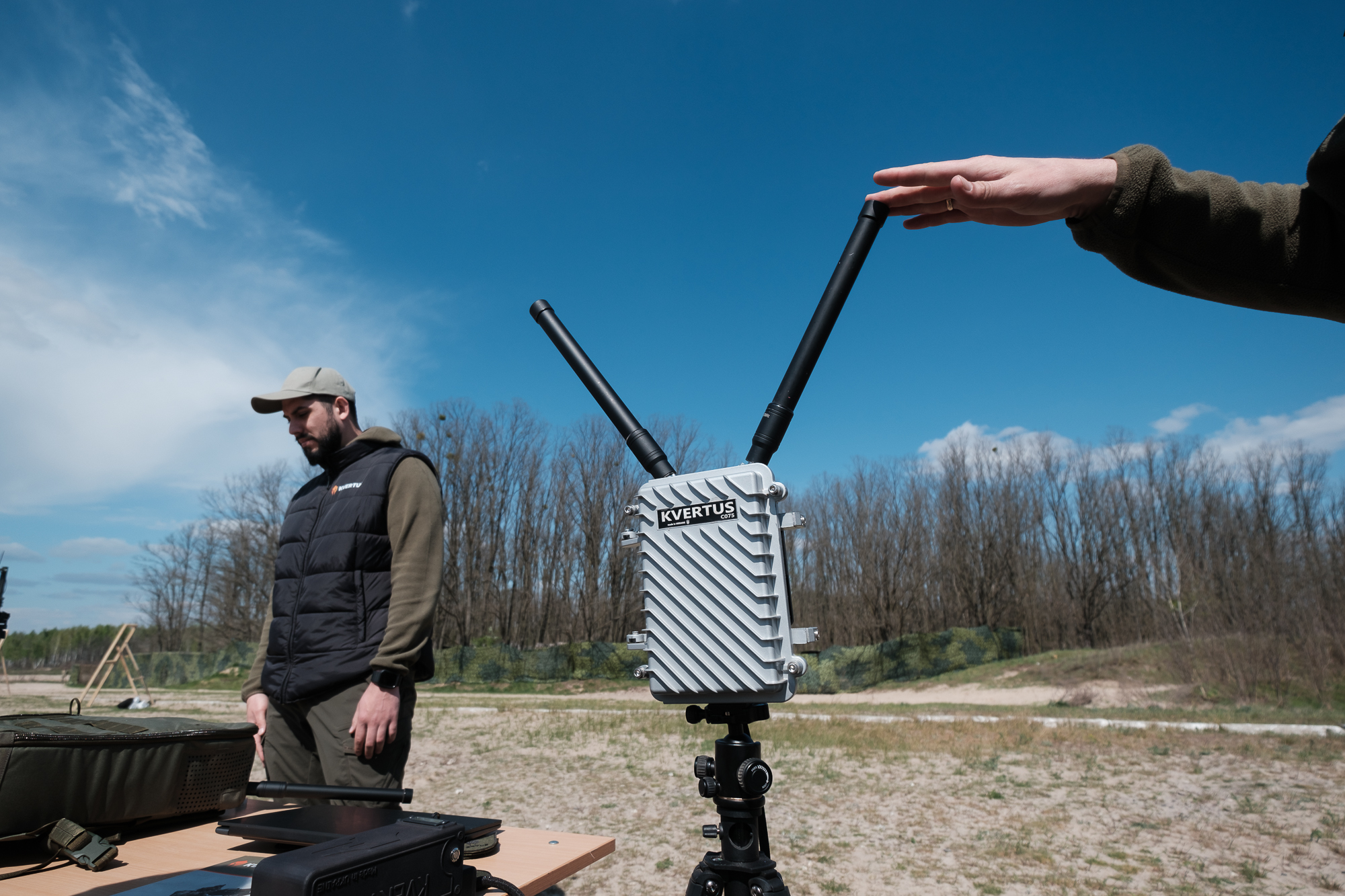
Photo: Intelligence has tools to detect the enemy and determine its number (Vitalii Nosach/RBC-Ukraine)
At that time, during the 2000s, we had unique developments to counter the Russians. Everyone knows about Kolchuga; it was a unique complex. To this day, the Russians have not been able to create anything similar. There’s one technological aspect that originated during the Soviet Union. There is a unique block, and these technologies were in the hands of our specialists. The Russians still haven’t been able to replicate them. It was difficult for the Russians to create a unified system to integrate all three ER levels.
In 2014, we had no tactical electronic reconnaissance. That’s the first issue. The second and most critical issue was the lack of specialists.
We have an entire unit dedicated to software. These are analysts, not only for signal analysis but also for the military-political situation of the enemy. It’s a very powerful team. These are highly intellectual people who must understand physical processes — not physiology, but physics. In addition, they must be well-versed in all related topics.
By 2014, we had problems. At that time, there were no domestic complexes of this format. However, we quickly started using some foreign samples. However, they were not fully adapted to modern warfare as they are now. Let me give you an example. Currently, we mostly use our own systems, but we also have the opportunity — which has even become a trend for some countries — to provide their equipment for combat testing. Once, we were given such equipment.
One of the components of the complex was an antenna system. It was housed in a white radiotransparent dome. And just by looking at this white dome, it was immediately clear — it needs camouflage. But it’s not enough to paint it khaki; specific technologies are required to ensure that the radiotransparent dome can still receive radio signals.
We had to apply some acquired masking techniques. Additionally, their software was excellent, top-notch, but it wasn’t adapted to Russian communication systems. Some adjustments had to be made to adapt it to our battlefield conditions.
– Does the ER participate in operations planning? Do you provide information and strategically plan with other units?
– Any military operation begins with planning. Any military plan starts with the first point — assessing the enemy. This is directly the "bread and butter" of intelligence.
Our main task is to identify the enemy’s composition: their numbers, their location, where they are positioned, and their state of combat readiness. The highest level of skill is to predict or know their actions. Therefore, no operation has ever been planned without the participation of intelligence.
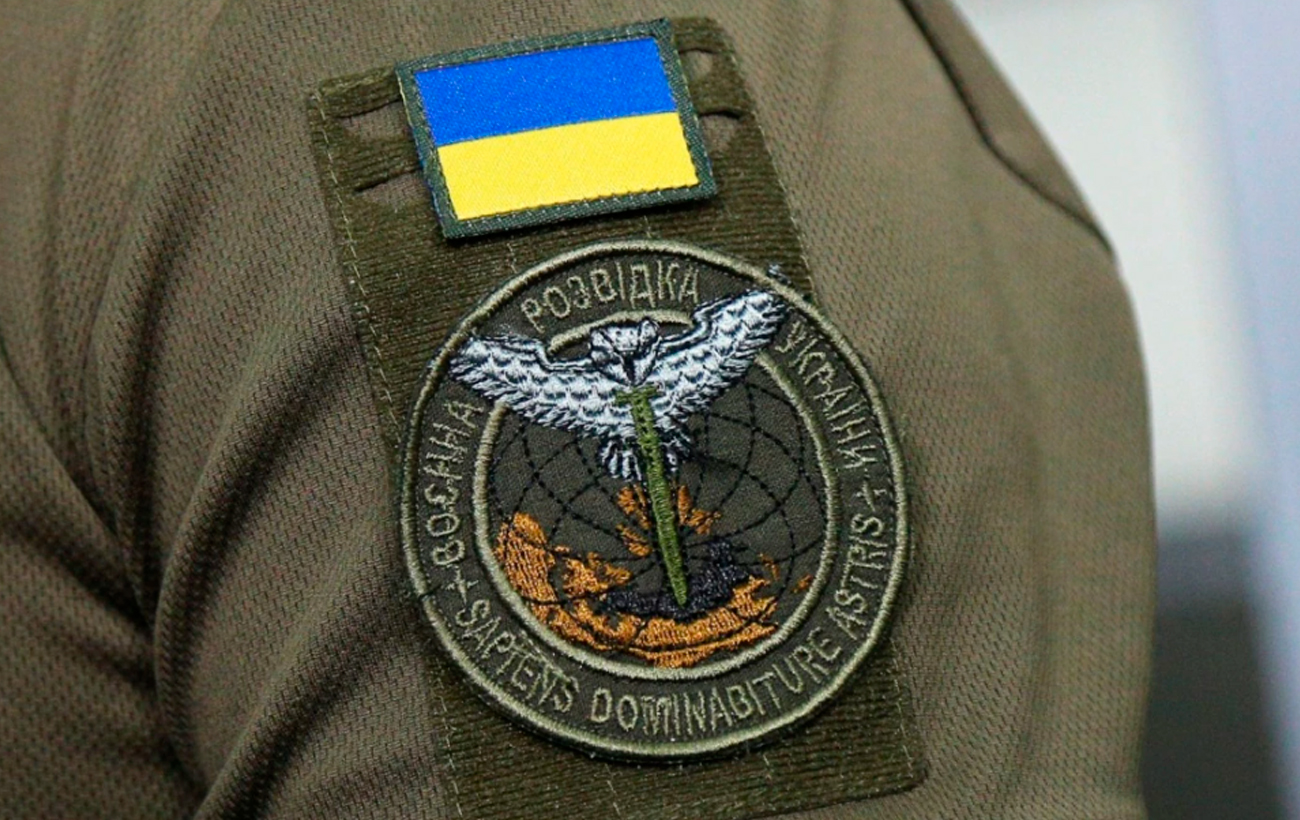
Photo: DIU has a unit where analysts assess the military-political situation of the enemy (armyinform.com.ua)
– During the successful operations in Kharkiv and Kherson regions, was it primarily due to tactical-level reconnaissance and planning based on intelligence? Is this the main key to the success of these operations?
– We directly participated in assessing the enemy. Our advantage is that we were already tracking the enemy even before the full-scale war. We knew the peculiarities of their organization.
Our unique sources allowed us to receive information quickly, reliably, and over long distances. When the unit moved in, we already said: "In front of you is a unit at the level of a company, battalion, or division." If we had processed the information further, we could have specified that it was the first company in the third battalion of the 27th Separate Motorized Rifle Brigade of the First Tank Army.
In addition, our main task is to determine the enemy’s composition, position, and nature of actions. We are also assigned specific tasks, for example, determining the moral and psychological condition of the enemy.
We can assess their morale from intercepted communications, but this is our subjective evaluation. We are not psychologists. However, we do have some specialists in our units. We can make a preliminary assessment of their state. When our troops take positions, and if there is interaction with them, if they are ready to listen to us and trust us, we can provide such information.
– How did your work proceed during the Kharkiv operation?
– During the counteroffensive operation in Kharkiv, we knew where the enemy was located. We even knew the names of the commanders of their units. And this helped. When the Kharkiv offensive operation was conducted, during the movement of our troops, we provided them with information about who was opposing our units and their condition.
I remember one episode. The enemy was already pushed across the Oskil River. They were in a state of panic. They said, "They’re waiting for us here," "They were expecting us here." But we just knew where they were going. And we informed our troops that they were there.
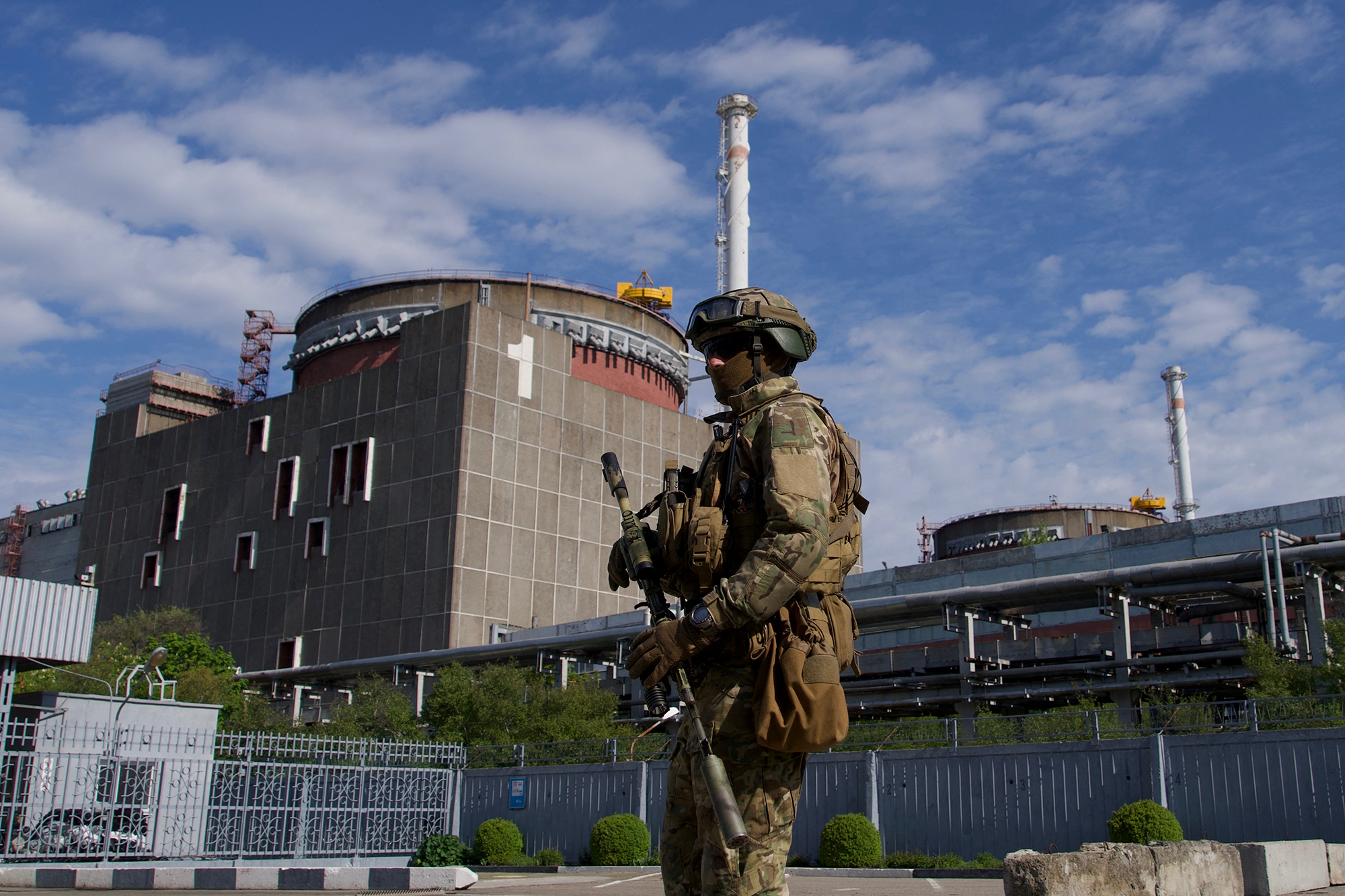
Photo: The main task is to determine the enemy's composition, position, and nature of actions (Getty Images).
– When the Russians attempted another breakthrough in Kharkiv, did you know and predict this in advance?
– I believe this was one of the most successful operations ever conducted, and we played a significant role in it. We completed these three tasks: identifying the composition, determining the position, and roughly indicating when it would happen.
Moreover, thanks to our colleagues, the main direction of the enemy’s efforts was determined, which allowed us to respond in time to that direction. This is the highest level of skill. And most importantly, the leadership reacted promptly, especially our leadership in the DIU.
We identified, predicted, and warned. And there was a reaction. To this day, they still cannot achieve anything there. They are constantly being pushed back. They are trying to approach the Oskil, but they fail. You see, they cannot even think about advancing on Kharkiv now.
– What was their mood like at that time?
– Even now, their mood is panic-stricken. Literally, a couple of days ago, they were shouting in the air that they didn’t have enough forces to storm. On the Kharkiv direction, it’s just pure panic. They’re constantly bringing in reserves, constantly changing their leadership, and new personnel are constantly arriving.
– How do you determine which person you need to track? Do you have specific tasks for certain individuals or specific targets?
– It depends on the task assigned to us by the leadership. For example, assessing the enemy – who is standing in front of you, or evaluating who is leading them. In addition to technical work, there is an analytical component. There are entire analytical units.
There was a case when we began tracking the enemy's preparations. It was noted that the callsign of the operation’s leader had changed. So, we started investigating who this person was and why they were there. It turned out to be a former Ukrainian Armed Forces serviceman, a traitor who defected to the enemy’s side in 2014. Now, he holds a leadership position commanding an army.
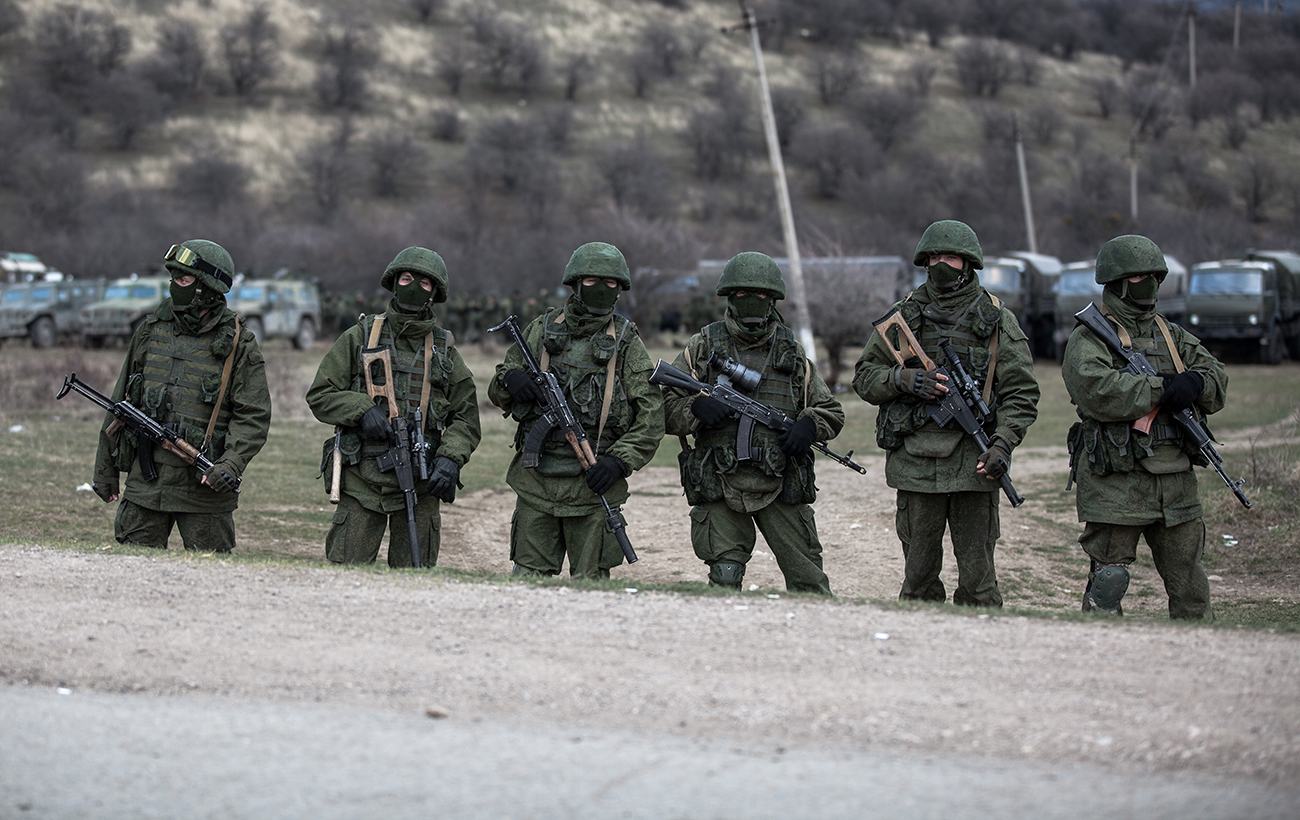
Photo: Thanks to intercepts, Ukrainian forces track the movements of the occupiers (Getty Images).
When we began to delve into his background, we discovered he had many relatives in the Kharkiv region. He was familiar with the area, and the Russian leadership appointed him to conduct this operation.
Another example is the movement towards the borders of Belgorod and Kursk regions. The Russians have relocated some units that were previously in our territory. Based on certain radio data and the specifics of their equipment, we identified who they were and where they were located. We then passed this information to our units to gain physical access to the source.
– If we analyze the most active frontlines, what is their morale now based on intercepts?
– First, they didn’t believe they were going to war. Second, they were emotionally unprepared for combat. They were in shock. They couldn't say everything when they spoke with their relatives and knew they were heading into war. Emotionally, it was clear they felt fear and uncertainty.
They were in complete shock. Especially in the Kharkiv region, when they were hiding in forests near Izium, without water or food. The looting was horrific! It was terrifying: they fled, not knowing where to run. This was all evident, especially in their conversations with relatives.
– Were they complaining to them?
– They complained. And they still complain now. The first thing they complain about is the conditions. Those on the frontlines are in terrible condition. For example, we heard on the radio that someone had been sitting in the gray zone for two months, conducting surveillance. Food and water were thrown to him there. He couldn’t move in either direction.
When their leadership realized the moral and psychological state of the rank-and-file, given these terrible conditions, they concluded. Military-political work departments were involved, as were local authorities who incentivized personnel. And when payments started "dripping" into their wives' accounts, everything became "fine." The wives themselves would say, "Hold on, the governor's payment just came in." It’s horrifying, just horrifying.
– So, the Russians are willing to do anything for money?
– They are. And as long as those 200,000 are being paid, they may not be willing, but they’ll be forced. I want to point out that you can feel the complete degradation of a person. You can’t imagine what that’s like.
They are more aggressive. They no longer fear killing. Not all of them – this is more of a collective image. There’s a sense of impunity. This is more about the officers. They feel needed by their pseudo-state. They have power, and on the battlefield, they can do whatever they want.
– Do Russian commanders feel impunity even towards their own soldiers?
– Yes, even towards their own. The commander of the second battalion of the 164th brigade of the 25th army personally shot two servicemen, and this was reported without any hesitation... Maybe so we would hear it... He openly ordered his subordinates to execute the soldiers because they refused to go into battle.
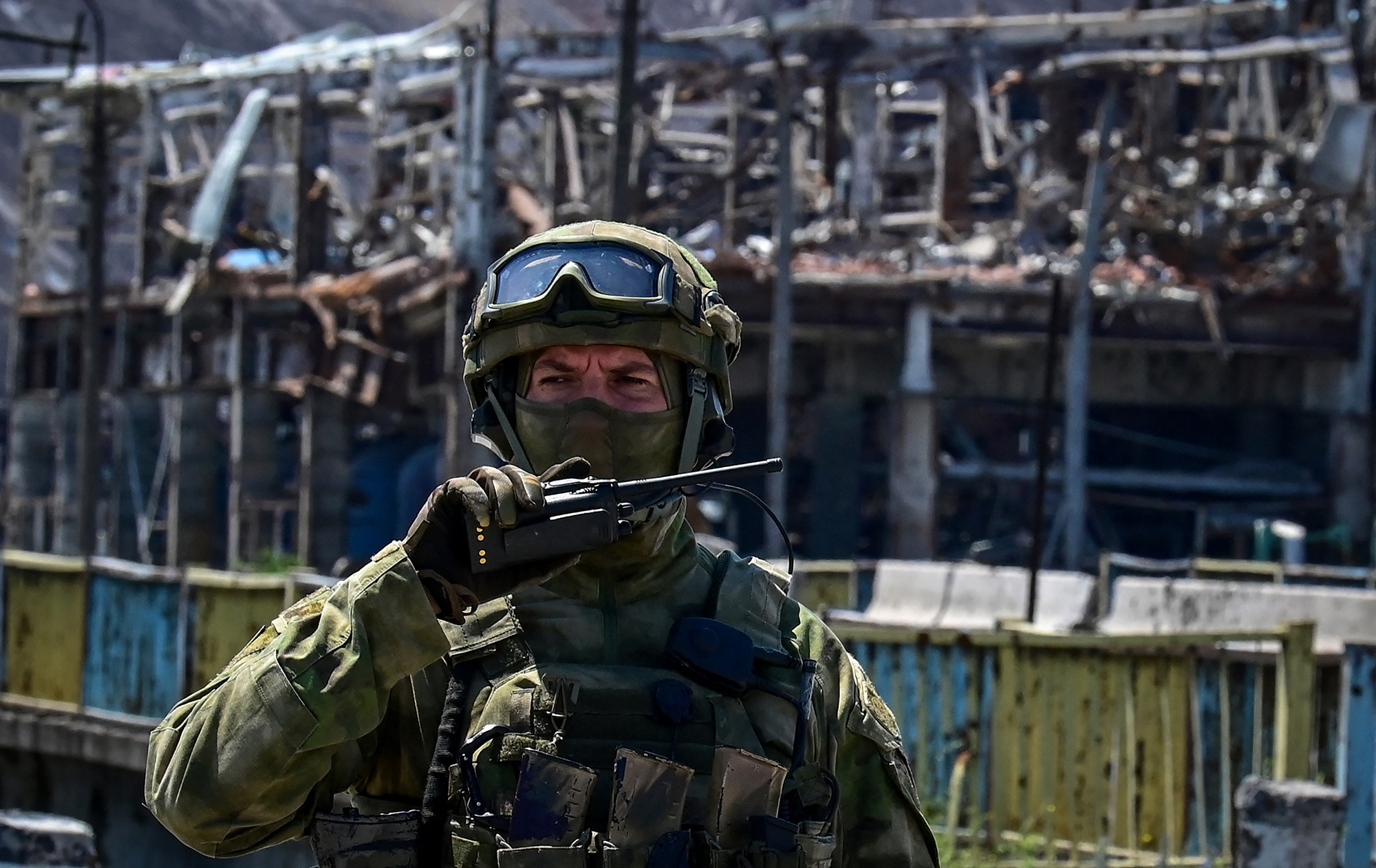
Photo: Russians give orders to kill their own soldiers for refusing to fight (Getty Images)
– Are they ready to keep going?
– Concerning the combat actions in the Kupiansk direction. The assault battalion of the 20th Army was created this year. Their confirmed losses in one day were 40 wounded, 12 killed, and 67 missing in action. That’s in one day. They formed a combined battalion from the entire army, gathering all the "troublemakers" back into assault battalions. And the next day – nearly the same losses.
There was another case in the Lyman direction. The task was to cross a river. The river is small, but it’s not easy to cross. And our forces, having the advantage of higher ground and knowing who was in front of them, started destroying them. But they (the Russians – ed.) kept sending them into the assault, wave after wave.
They managed to take a small bridgehead from us. Do you know how? By building a crossing. But only from their corpses. And they (the Russians – ed.) walked on their dead corpses. It was horrific. They just walked over them. Will they keep fighting? They couldn’t care less about their people.
– Have you heard of criminal orders regarding our prisoners of war?
– Two of our servicemen were taken prisoner. And the order was direct: "dispose of them." This was the day before yesterday. We immediately informed our guys about the situation. These are criminals from the 27th motorized rifle brigade of the First Tank Army. I hope they will be found and punished.
Such cases have become very frequent. I was shocked when I first heard about it. It was at the beginning of the war, and it’s extremely difficult. This is probably one of the most challenging aspects of our work. When you hear it and can’t help the guys.
And the most shameful incident of the 21st century – when they decapitate someone. And this is the "elite," the 155th Separate Marine Brigade. I was shocked by this aggression. It’s another world, another civilization.

